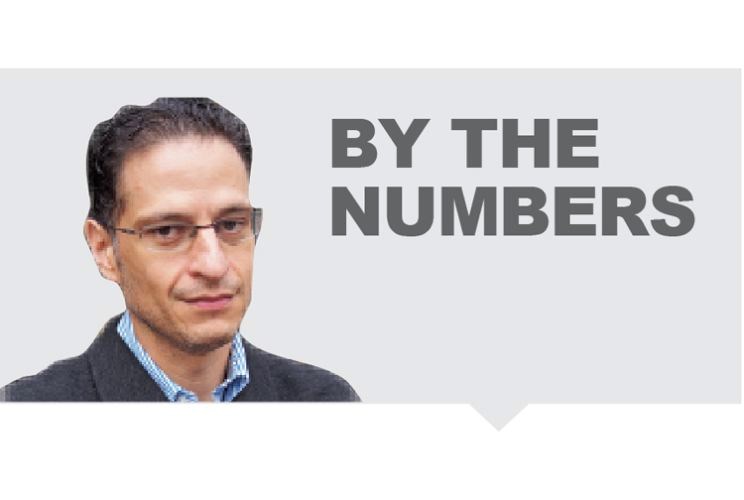As 1992 came to an end, Queen Elizabeth referred to the previous 12 months as an "annus horribilis" - a horrible year.
There were plenty of reasons for the monarch to feel that way, ranging from a destructive fire at Windsor Castle to the official announcement of the separation of her son Charles and Diana, Princess of Wales.
Almost three decades later, there are lingering questions about another separation, this time featuring the United Kingdom and the European Union. Through it all, the Queen has remained one of the most beloved royals in Canada. But when Canadians are asked what should happen when she no longer reigns over us, the situation becomes a bit more confusing.
Research Co. asked Canadians about the monarchy. As has been the case since I first reviewed these sentiments more than a decade ago, Canadians can be assembled in three groups of a similar size.
One-third of Canadians (33 per cent) say they would prefer an elected head of state and a similar proportion (31 per cent) want Canada to stay a monarchy. The remaining respondents either do not care either way (19 per cent) or are undecided (17 per cent).
Support for the continuation of the monarchy is strongest in Atlantic Canada (42 per cent) and Alberta (40 per cent), while the idea of an elected head of state is particularly appealing for Quebecers (53 per cent).
While roughly the same proportion of men and women want Canada to remain a monarchy (30 per cent and 32 per cent, respectively), men react more positively to the notion of having a Canadian as our head of state (39 per cent, compared with 26 per cent of women).
Queen Elizabeth maintains an extraordinary favourability rating of 71 per cent across the country. Exactly the same proportion (71 per cent) also hold positive views of Prince William, while 70 per cent feel the same way about his younger brother, Prince Harry.
The favourability numbers are also high for Catherine, Duchess of Cambridge (68 per cent) and the newest addition to the Royal Family: Meghan, Duchess of Sussex (60 per cent). Prince Philip checks in at a very decent 54 per cent.
Still, a problem that I have consistently witnessed over the past 11 years remains in place today: fewer Canadians have a positive view of the person who will eventually be featured on our coins and bills. Only 43 per cent of residents have a favourable view of Prince Charles, and even fewer (32 per cent) feel similarly about Camilla, Duchess of Cornwall. The differences between Canadians' perception of Charles and their view of William are striking. In monarchy-friendly Alberta, 69 per cent of residents have a favourable view of William, but only 37 per cent feel the same way about his father. A similar situation ensues in British Columbia, where William's rating (76 per cent) towers over that of Charles (42 per cent).
Even in Quebec, where residents are not shy to call for the end of the monarchy, the heir to the throne is clearly outranked by his oldest child (41 per cent to 67 per cent). Among Canadians aged 18 to 34, supposedly unconcerned about all matters royal, William also has a higher favourability rating (51 per cent) than Charles (37 per cent).
When Canadians are provided with a choice as to who their next monarch should be, the first-born son fares better than his father. We find that 41 per cent of Canadians would prefer to have Prince William as king, while only 20 per cent express a preference for Prince Charles. In fact, no demographic in the survey selects Charles over William when given the opportunity. The father does a little bit better among those who voted for the Conservative party in the 2015 federal election (27 per cent, with William at 41 per cent) and Ontarians (25 per cent, with William at 39 per cent).
Though one-third of those surveyed would like to have an elected head of state, the views on a possible republic become more realistic when Canadians are asked to look 20 years down the road. A majority of Canadians (56 per cent) believe Canada will still be a monarchy in 2039, while 23 per cent - including 30 per cent of Quebecers - expect the country to have an elected head of state.
Much has changed since I started tracking Canadian perceptions of the Royal Family, particularly the explosion of social media, the different ways in which generations are communicating with each other and the difficulty of glossy magazines to command an audience in a landscape that has shifted its focus to actors, athletes and team owners at their worst.
In this new world, only the Queen and her two male grandchildren are viewed favourably by seven in 10 Canadians. The Queen's granddaughters-in-law are also viewed approvingly by a comfortable majority.
The heir apparent continues to struggle. Just over two in five Canadians view Charles favourably, and only a third feel the same way about his wife. If Canadians - by a two-to-one majority - currently prefer to have Prince William as their next monarch, the ascension of Charles, regardless of which of his four names he ultimately selects as king, may not be as joyous as originally envisioned.



